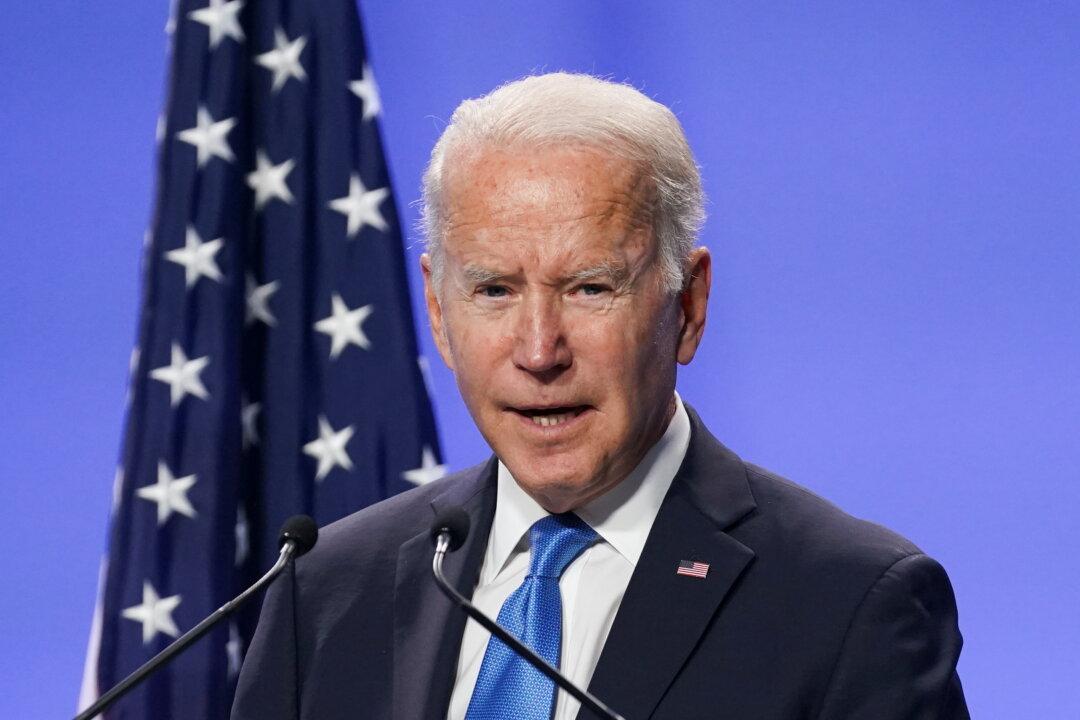President Joe Biden has brushed off concerns about a possible armed conflict with China, saying he has made clear to the Chinese leader their relationship is one of competition rather than conflict.
“Am I worried about an armed conflict or some—that accidentally occurring with China? No, I’m not,” he said in a Nov. 2 press conference in Glasgow, Scotland.





